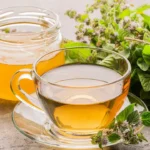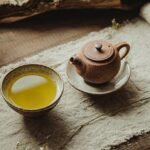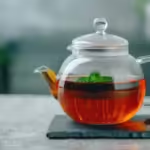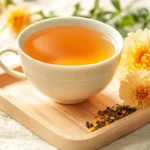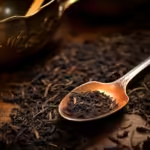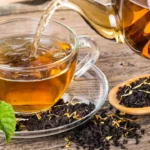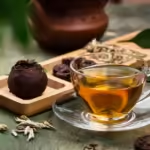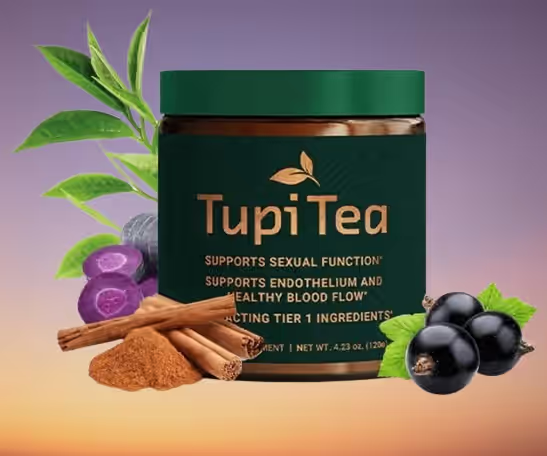Table of Contents
Introduction to Lemon Balm Loose Leaf Tea
Lemon balm loose leaf tea is a fragrant, soothing herbal drink made from the leaves of the lemon balm plant (Melissa officinalis). Known for its citrusy aroma and calming properties, this tea has been a go-to remedy in traditional medicine for centuries. But why is it gaining popularity again? This article dives deep into what makes lemon balm loose leaf tea a must-try, covering its benefits, who should avoid it, and whether the leaves need to be dried for brewing.
What is Lemon Balm Leaf Tea Good For?
Lemon balm tea boasts an impressive list of health benefits, thanks to its high concentration of antioxidants and essential oils.
1. Promotes Relaxation and Reduces Stress
Lemon balm is renowned for its calming effects. Studies show that its natural compounds, such as rosmarinic acid, help to reduce cortisol levels, alleviating anxiety and stress. A warm cup of lemon balm tea in the evening can significantly improve mood and promote relaxation after a long day.
2. Improves Sleep Quality
Insomnia and restless nights can be combated with lemon balm tea. This herbal remedy acts as a natural sedative, calming the nervous system and encouraging restful sleep. Drinking lemon balm tea an hour before bed can work wonders for those struggling with sleep disorders.
3. Aids Digestion
If you suffer from bloating, indigestion, or cramps, lemon balm tea might be the solution. Its antispasmodic properties can ease discomfort in the digestive tract. It’s also effective in relieving nausea.
4. Boosts Cognitive Function
Recent research suggests that lemon balm may enhance memory and concentration. Its natural compounds improve cognitive function, making it a great choice for students and professionals.
5. Supports Skin Health
The antioxidants in lemon balm tea combat free radicals, reducing the signs of aging and promoting healthy, glowing skin. Additionally, its anti-inflammatory properties may help soothe irritated skin when consumed regularly.
Who Should Not Drink Lemon Balm Tea?
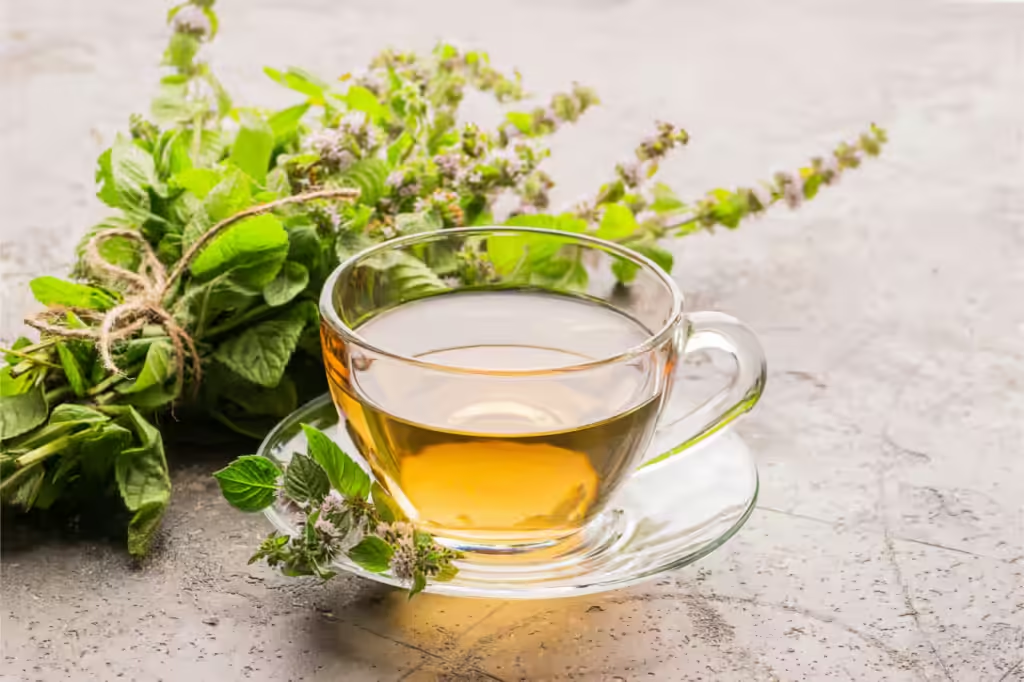
While lemon balm loose leaf tea is beneficial for many, it’s not suitable for everyone. Certain groups should exercise caution:
1. Pregnant and Breastfeeding Women
Although there is limited research, some health professionals advise pregnant or breastfeeding women to avoid lemon balm tea due to its potential hormonal effects.
2. People with Thyroid Issues
Lemon balm may interfere with thyroid function. Individuals with hypothyroidism or those taking thyroid medication should consult a healthcare provider before drinking this tea.
3. Children Under 12 Years Old
Herbal teas can have strong effects on children, and lemon balm tea is no exception. It’s best to avoid giving it to young children unless advised by a pediatrician.
4. Individuals on Sedative Medications
Since lemon balm has calming and sedative properties, combining it with medications like benzodiazepines or other sleep aids can intensify drowsiness, leading to unwanted side effects.
Does Lemon Balm Have to Be Dried for Tea?
This is a common question among tea enthusiasts and home gardeners. The answer depends on your preferences and how you want to use the leaves.
Using Fresh Leaves
Fresh lemon balm leaves can be used directly to make tea. They offer a bright, slightly tangy flavor and retain all their essential oils, making the tea both flavorful and aromatic. To prepare, simply rinse the leaves thoroughly, crush them gently, and steep them in hot water for about 5–10 minutes.
Using Dried Leaves
Drying lemon balm leaves concentrates their flavor and extends their shelf life. Dried leaves are often preferred for their convenience and slightly stronger taste. To dry the leaves, spread them in a well-ventilated area or use a dehydrator, ensuring they remain vibrant and aromatic.
Which is Better?
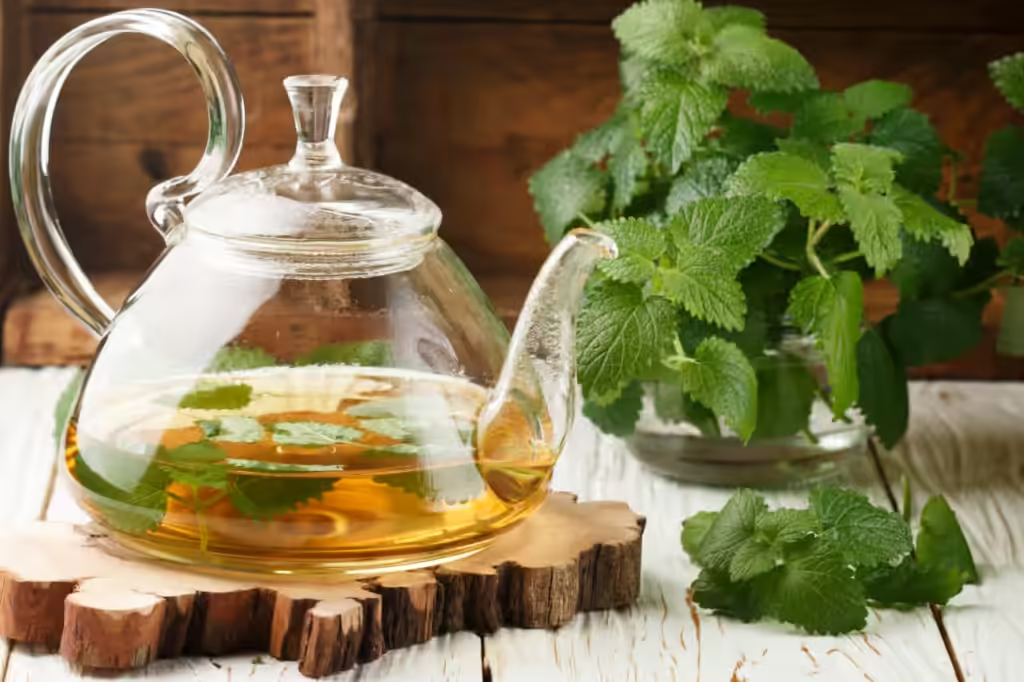
Both fresh and dried leaves have their advantages, so the choice depends on your needs. Fresh leaves are ideal for immediate use, while dried leaves are perfect for long-term storage. Either way, you’ll enjoy the soothing benefits of lemon balm loose leaf tea.
How to Brew the Perfect Cup of Lemon Balm Loose Leaf Tea
Brewing a cup of lemon balm tea is simple, yet a few tips can elevate your tea experience:
Ingredients
- 1 teaspoon of dried lemon balm leaves (or 2 teaspoons of fresh leaves)
- 1 cup of boiling water
- Optional: honey or lemon for added flavor
Steps
- Add the lemon balm leaves to a teapot or cup.
- Pour boiling water over the leaves.
- Cover and let steep for 5–10 minutes.
- Strain the leaves and enjoy your tea.
For a stronger brew, steep the tea longer or add more leaves.
Final Thoughts
Lemon balm loose leaf tea is more than just a beverage—it’s a natural remedy packed with health benefits. From promoting relaxation and improving sleep to aiding digestion and boosting cognitive function, this tea deserves a place in your daily routine. However, it’s crucial to consider the precautions, especially if you fall into one of the groups who should avoid it.
Whether you prefer fresh or dried leaves, the versatility and soothing properties of lemon balm tea make it an excellent choice for herbal tea lovers. So, why not brew yourself a cup today and enjoy its calming benefits?

